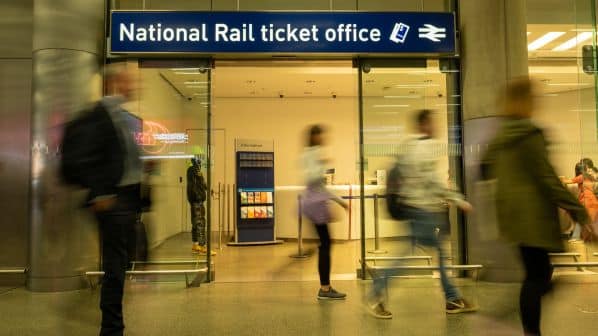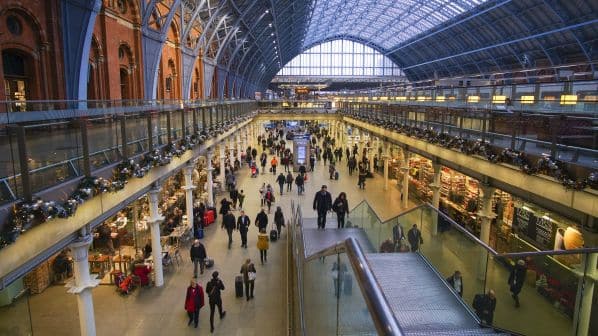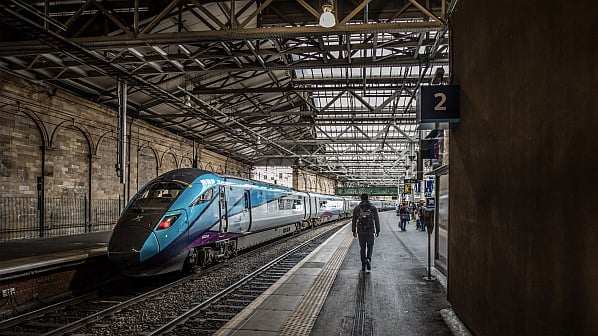BRITAIN’s transport secretary, Mr Mark Harper, has asked operators to withdraw proposed changes to station staffing that were expected to result in the eventual closure of most ticket offices in England.
“The consultation on ticket offices has now ended, with the government making clear to the rail industry throughout the process that any resulting proposals must meet a high threshold of serving passengers,” Harper said.
“We have engaged with accessibility groups throughout this process and listened carefully to passengers as well as my colleagues in parliament,” he added.
“The proposals that have resulted from this process do not meet the high thresholds set by ministers, and so the government has asked train operators to withdraw their proposals.”
Public consultation on the proposed changes was conducted between July 5 and September 1 by each of the 11 operators concerned: Avanti West Coast (AWC); c2c; Chiltern Railways; East Midlands Railway (EMR); Govia Thameslink Railway (GTR); Greater Anglia; Great Western Railway (GWR); London North Eastern Railway (LNER); Northern; South Western Railway (SWR); and TransPennine Express (TPE).
National watchdog Transport Focus and London TravelWatch, which is responsible for Greater London, received a total of 750,000 responses from individuals and organisations. London TravelWatch says that 99% of the responses it received were objections.
Transport Focus says that the main themes emerging from the responses included ticket vending machine (TVM) capability, accessibility and how passenger assistance and information would be provided in the future.
The watchdog days that discussions with operators during the extended consultation process produced significant revisions to their original proposals, including restoring current staffing hours as well as providing additional facilities to sell a wider range of tickets, handle cash payments and process refunds.
However, Transport Focus says that the detail of some proposals, particularly new customer support arrangements, were not well developed. The lack of an overall delivery plan also raised concerns that ticket offices might be closed before the new arrangements were in place.
Accordingly, both Transport Focus and London TravelWatch announced on October 31, before Harper’s statement, that were formally objecting to the proposals from the 11 operators.
“Serious overall concerns remain about how potentially useful innovations, such as welcome points, would work in practice,” said Transport Focus chief executive, Mr Anthony Smith.
“Some train companies were unable to convince us about their ability to sell a full range of tickets, handle cash payments and avoid excessive queues at ticket machines.
“Passengers must be confident they can get help when needed and buy the right ticket in time for the right train,” he said.
The Rail Delivery Group (RDG) that represents operators says that only 12% of tickets are currently sold at ticket offices, compared with 82% when the current Ticketing and Settlement Agreement for the industry was drawn up in the mid-1990s prior to the privatisation of passenger operations in Britain.
With ticket office use “irreversibly declining,” RDG says that the industry must respond to this “generational shift” at a time when revenue remains 30% below pre-pandemic levels. RDG also points out that 50% of tickets were purchased online in 2022, compared with 34% in 2019 before the Covid-19 pandemic.
The proportion of tickets purchased at TVMs has risen from 12% to 16% between 2019 and 2020.
Of the 1766 stations managed by operators reporting to the Department of Transport (DfT), RDG says that 759 or 43% are either unstaffed or have no ticket office, while 708 or 40% are staffed for only part of the operating day.
Responding to Harper’s announcement, RDG chief executive, Ms Jaqueline Starr, said: “these proposals were about adapting the railway to the changing needs of customers in the smartphone era, balanced against the significant financial challenge faced by the industry as it recovers from the pandemic.”
“While these plans won’t now be taken forward, we will continue to look at other ways to improve passenger experience while delivering value for the taxpayer.”
Although presented as a means of modernising ticket retailing while improving customer service, the proposed changes have been widely seen as a key part of the government’s drive to cut the cost of operating Britain’s rail network.
“There is quiet fury in the rail industry about where we’ve got to,” one insider told the PA Media news agency: “The plan was signed off by civil servants and ministers. They’ve U-turned.”




